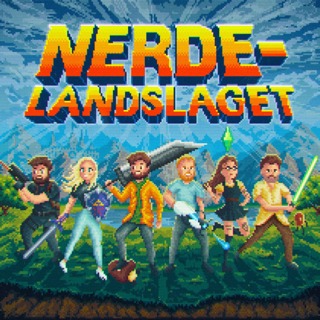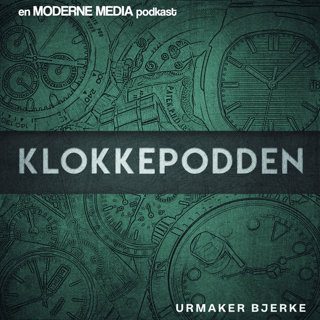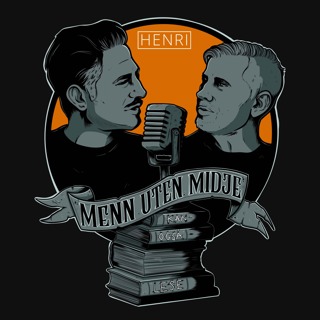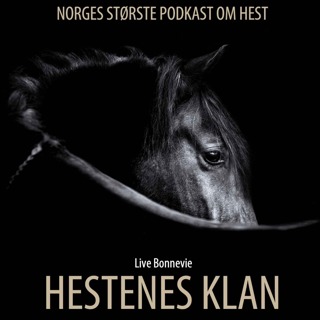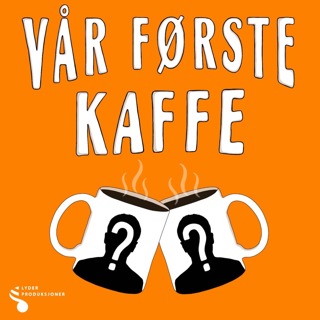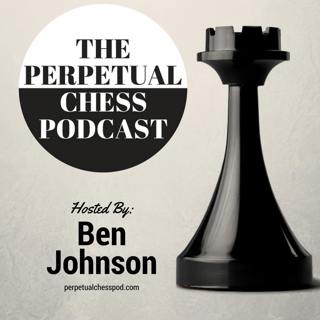
EP.133 - GM Pentala Harikrishna
GM Pentala Harikrishna has been World Junior Champion, Asian Individual Champion, and he has been ranked as high as #10 in the world! In between tournaments, while home in Prague, GM Harikrishna joined me to assess his most recent tournaments, reflect on his career, and to talk about his recently released Chessable course, which provides a complete repertoire against the French Defense. Please read on for many more details, notes and timestamps. .. 0:00- GM Harikrishna has been quite busy of late, so he begins our conversation by discussing his two recent most GM tournaments, The Shenzen Masters, and The TePe Sigeman Chess Tournament. GM Harikrishna finished in second place in both tournaments. Players mentioned: Anish Giri, Nihal Sarin, Gawain Jones Games Mentioned: Harikrishna-Giri 2019, Harikrishna-Sarin 2019 8:35- Does GM Harikrishna have a special knack for endgames? How does he prepare for an invitational GM tournament 11:45- Why did GM Harikrishna recently move from Belgrade to Prague? Mentioned: Nový Bor Chess Club, GM David Navara 15:00- We talk about chess in India, includiing whether living away from India affects GM Harikrishna’s sponsorship with Bharat Petroluem Corporation Limited? We also briefly discuss some of India’s young phenoms including Gukesh, Praggnanandhaa and Nihail Sarin 19:00- As a former top junior player and World Junior Champion, what advice would GM Harikrishna give to other strong young players? 25:30- We talk about GM Harikrishna’s new Chessable Course, called French Toast: How Harikrishna Fries 1… e6 . This includes a question from a Patreon supporter of the podcast about the challenges GM Harikrishna faced in trying to tailor an opening course for players of a wide range of experience levels. Mentioned: GM Magesh Panchanathan, IM Dmitri Schneider, Harikrishna-Rapport 2019 (Watch GM Hari analyze his the game here), Adams-Gupta 2018 36:30- We talk chess improvement. GM Harikrishna weights the importance of solving studies, and answers a question from friend of the podcast, Moonmaster 9000 about whether it is important to memorize games. Mentioned: Domination in 2,545 Studies 44:00- What is GM Harikrishna’s favorite game of his? Mentioned: Mamedyarov-Harikrisha 2016, Bobby Fischer 48:00- We say our goodbyes. You can check out GM Harikrishna’s Chessable course here, and can keep up with him by following him on twitter here. To help support the podcast, go here. See omnystudio.com/listener for privacy information. Learn more about your ad choices. Visit podcastchoices.com/adchoices
2 Jul 201956min

EP.132 - FM Alex Dunne
FM Alex Dunne is the author of over 12 books, including the recently released, Fred Reinfeld, The Man Who Taught America Chess. Alex is also an ICCF Correspondence Chess Master, and is well known for his popular column about correspondence chess in Chess Life magazine, called The Check is in the Mail. In our interview we discuss Fred Reinfeld, correspondence chess, chess improvement, Bobby Fischer and more. Please read on for more details. 0:00- We kick off by discussing Alex’s latest book, Fred Reinfeld, The Man Who Taught America Chess. We discuss the life and legacy of Fred Reinfeld. Reinfeld was a top 10 player in the US, and is probably the best selling chess author of all time. He was also one of the first Americans to make a living from chess, and managed to do so despite coming of age during The Great Depression. Mentioned: Israel “Al” Horowitz, Irving Chernev, Fred Reinfeld Whales and Whaling . 1001 Brilliant Ways to Checkmate . Keres Best Games of Chess. 1931-1940 18:00- Alex discusses how correspondence chess has changed at its highest levels, and assesses the future of correspondence chess. We also discuss the nuts and bolts of how correspondence games are transmitted, and the rules regarding when book/engine assistance is and is not allowed in correspondence chess. 27:45- Alex has written a book about chess books, and has over 2,000 chess books titles in his library, so naturally I had to ask him about chess books. Mentioned: My Great Predecessors, Vassily Ivanchuk: 100 Selected Games, Mato Jelic’s YouTube Channel , The Complete Chess Course by Fred Reinfeld 36:00- It took Alex about 20 years to go from the expert level to the master level, and then he continued to ascend up to a peak rating over 2400 USCF. How did he improve so much as an adult? Mentioned. Interview with Bob Ferguson and Alex Dunne 42:00- Alex reminisces about playing ping pong with Bobby Fischer as a teenager. Also mentioned GM Arthur Bisguier, GM Larry Evans 47:00- How did Alex get into chess writing? 49:30- Goodbye! You can email FM Alex Dunne here. If you would like to help support the podcast, go here. See omnystudio.com/listener for privacy information. Learn more about your ad choices. Visit podcastchoices.com/adchoices
25 Jun 201956min

EP.131 - GM Nico Checa
17 year old GM Nicolas "Nico" Checa is one of the young stars of the American chess scene. He recently tied for first place in the 2019 National High School Chess Championship. With a 2617 USCF rating, he is #7 on the US Chess top 100 Under Age 21 List, and has beaten Fabiano Caruana in the Pro Chess League. On top of that, Nico is a regular 17 yr old, with other interests and activities competing for his time. In our interview Nico talks about how he finds time for everything, and shares a lot about his approach to chess and chess improvement. Read on for links and timestamps. 0:00- Intro. We launch right into a discussion of how getting the GM title has changed Nico’s tournament selection and preparation. Mentioned in this segment: GM Ruifeng Li, GM John Michael Burke, IM Advait Patel, IM Praveen Balakrishnan 8:00- As Nico finishes his junior year at Dobbs Ferry High School, he touches on his after-high school plans, and discusses the reasons that he and his family never felt that home schooling was the right choice for him. 15:30- What “gaps in his play” did Nico need to plug in order to reach the strength to get the GM title? Mentioned in this segment: IM Alexander Katz, GM Jacob Aagard Game: Checa-Katz 2018, 2019 Philadelphia International , 2019 US Junior Championship 23:55- How did Nico discover and get so good at chess anyway? Mentioned: Marshall Chess Club Books: Chess Secrets: Giants of Power Play by Neil McDonald, Learn from the Legends, Chess Champions at Their Best by GM Mikahil Marin, The books of GM Jacob Aagard,Chess: 5334 Problems, Combinations and Games Games: Checa-Smirin 2016, Fischer-Byrne 1956 40:30- Who are Nico’s favorite chess players? Mentioned: Magnus Carlsen, Fabiano Caruana, Bobby Fischer, Botvinnk, 44:30- Fast chess vs. slow chess we settle the debate once and for all!! Just kidding, but Nico weighs in and shares his ideas about the roles of classical chess and rapid chess in the chess world. Mentioned: IM Greg Shahade 47:00- We discuss Nico’s interests outside of chess, including soccer and political science. Mentioned in this segment: GM Parham Maghsoodloo 56:00- Goodbye! Keep up with Nico via Chess.com If you would like to help support the podcast, you can do so here: See omnystudio.com/listener for privacy information. Learn more about your ad choices. Visit podcastchoices.com/adchoices
18 Jun 20191h 4min

EP.130 - IM Eric Rosen returns
Nearly two years after our first interview popular Chess YouTuber, Twitch streamer, Photographer, Author, and yes, chess player, IM Eric Rosen returns to Perpetual Chess. As we discuss, a lot has changed for Eric in the past two years, including his place of residence and many of his professional responsibilities, but he remains a great person with whom to talk all things chess. Read on for more details, timestamps and links. 0:00- Intro. Eric discusses why he has set up residence in St. Louis and gives some details on his most recent tournament, The St. Louis Norm Congress. This includes a discussion of a new video approach Eric recently tried, where he recorded his opening preparation for specific opponent’s and subsequently posted it to YouTubet. Check out one of these YouTube prep videos here. You can see the list of Eric’s most popular YouTube videos here (as we discuss) here. 12:00- Why has Eric decided to deemphasize competing in tournaments as compared to all of his other chess work? Mentioned in this segment: Chessbrahs, FM LeFong Hua 16:30- A Patreon supporter of the podcast asks for advice in filtering YouTube videos for players in the 1300-1500 rating range. Mentioned in this segment: St. Louis Chess Club’s YouTube Channel, John Bartholomew’s Climbing the Rating Ladder Series 19:30- Another listener question leads to Ben and Eric discussing their favorite drinks to consume while playing chess. Mentioned in this segment: The Queen Side Cafe in Sydney, Australia 23:45- Since Eric is a popular Twitch streamer and I am a Twitch noob, he patiently answered some questions for me about how it works. Mentioned in this segment: Hikaru Nakamura 31:30- Eric reflects a bit on what has changed in his professional life since our first interview, which occured in August of 2017. Mentioned in this segment: Marc Maron interviewing David Letterman 37:00- We talk some chess improvement. Mentioned in this segment: Imagination in Chess , Recognizing Your Opponent’s Resources by Mark Dvoretsky 43:00- Eric answers a question from a Patreon supporter of the podcast regarding whether it is better to study at a fast or a slow pace. Mentioned in this segment: The Art of Learning by Josh Waitzkin , Searching for Bobby Fischer (the book) and the movie 48:00- One more listener question for Eric relates to how Eric balances all of his differing professional roles. Mentioned in this segment: Calendy.com 54:00- Eric tells the stories of the two different times he has managed to beat World Champion Magnus Carlsen in online chess tournaments. Mentioned in this segment: The Reddit Post about Eric beating ManWithAVan, Unknowingly Beating the World Champion , Playing the World Champion in Chess960, Game Show Network’s New Master Trivia Game (featuring former Perpetual Chess guest Jonathan Corbblah) 1:02- Eric asks me who my current dream guests for Perpetual Chess are. Mentioned in this segment: Timman’s Titans , Yasser Seirawan, Boris Spassky, Maurice Ashley, Perpetual Chess World Championship Report with IMs Eric Rosen and Kostya Kavutskiy 1:05- Goodbye! Follow Eric on YouTube, Twitch, Instagram and Twitter To help support the podcast, go here. See omnystudio.com/listener for privacy information. Learn more about your ad choices. Visit podcastchoices.com/adchoices
11 Jun 20191h 12min

EP.129 - IM Cyrus Lakdawala
This week’s guest is the highly productive and popular author and teacher, IM Cyrus Lakdawala. Cyrus has recently published his 40th (!) book, Opening Repertoire 1. d4 2. c4., and already has more books in the works. In addition to publishing multiple books per year, Cyrus also teaches chess for about 20 hours a week, plays in two tournaments per month, and even manages to meditate, exercise and read very regularly. In our conversation, Cyrus reveals how he accomplishes so much, talks some chess improvement, and tells some fun stories. Read on for details, links and timestamps. 0:00- Intro. We being by discussing Cyrus latest book, Opening Repertoire 1. d4 2. c4. Cyrus tells the story of how he decided it was time to try a spicier opening repertoire, after decades of playing "like a chicken.” The results he attained with this experiment pleasantly surprised him. Mentioned in this segment - IM Dionisio Aldama, IM Tony Saidy, IM Keaton Kiewra 12:00- Cyrus discusses the philosophy behind his unique, very personal writing style. We also discuss Cyrus’ writing routine, and how he reacts to critics. Mentioned in this segment - John Hartmann, ChessBase interview with Davide Nastasio 21:00- What is Cyrus’ opinion of the rise of engine use in chess study and chess spectacting? How does he use engines in his own game analysis and writing? 25:30- Cyrus answers a question from a Patreon supporter of the podcast asking him to compare his book Opening Repertoire… c6: Playing the Caro-Kann and Semi-Slav as Black to the book A Complete Repertoire for Black Using Solid Systems by Jovanka Houska and James Vigus. This leads to a broader discussion about how one should choose repertoires and opening books. 34:00 - We discuss Cyrus’ award winning book, Chess for Hawks. The premise of the book is that everyone is predisposed toward risky or safe chess, and should tailor her game accordingly. Cyrus also discusses what happens when he clashes against his most frequent opponent, IM Dionisio Aldama, who is a “hawk” to Cyrus’ “dove.” 45:00- Cyrus answers a question from another listener about how an under 2000 player should improve at endgames. Aside from his own endgame book, Cyrus recommends studying the games of Rubinstein, Capablanca and Magnus Carlsen. Also mentioned: Timman’s Titans, Kasparov’s Great Predecessors. 52:00- IM Lakdawala tells the story of how he met former World Champion, GM Boris Spassky a couple times, and shares his impressions of him. Also mentioned- GMs Tony Miles and Kasparov. 58:00- Cyrus shares some stories from his teenage years in Montreal, were he earned spending money by playing speed chess for money. 1:01- After five decades immersed in it, does Cyrus ever feel burnt out on chess? 1:04- Cyrus discusses the benefits and drawbacks of being autistic. 1:14- Goodbye and contact info! You can keep up with Cyrus via Facebook. To help support the podcast, go here. See omnystudio.com/listener for privacy information. Learn more about your ad choices. Visit podcastchoices.com/adchoices
4 Jun 20191h 22min

EP.128 - Doug Griffin (Chess writer/translator/blogger)
Douglas Griffin is a chess author/blogger, translator, and an indispensable source of historical chess perspective on “chess twitter”. He is particularly interested and knowledgeable about chess in the Soviet Union. Doug is also a strong player. As a teen, he was one of Scotland’s stronger junior players. His FIDE rating reached about 2270, before his family, his work and his strong interest in chess history overtook his interest in tournament participation. While Doug may not be as well-known as some of the Grandmasters and personalities that have been on the show, our talk was one I looked forward to, and sure enough, it was highly informative and inspiring.. For more information about Doug, you can check out his blog, and his twitter page. Please keep reading for timestamps and many fun links and resources. 0:00- Intro and discussion of Doug’s intro to the chess world. Mentioned in this segment, GMs Anatoly Karpov, Tony Miles, VIktor Korchnoi. The BBC show, The Master Game 6:00-How did Doug improve in chess and develop an interest in Soviet-era chess and the Russian language? He owes a debt of gratitude to his former teacher IM Danny Kopec, among others. 9:00- Doug transitions to telling some stories about some of the chess greats he encountered early in their careers. Players mentioned are those he saw at the Lloyds Bank London 1984- GM Vishy Anand, Ivanchuk, Spassky, Nigel Short. You can read a bit more about the Lloyds Bank tournament in this Chessbase article by Priyadarshan Banjan Read Doug’s blog post about the Troon 1984 tournament he mentions and about GM Lev Psakhis in his blog post here. 14:30- How did Doug learn Russian, and where does he get all of the original sources for his blog? Magazines mentioned: Shakhmatny Bulletin , Chess in the U.S.S.R. and “64” Doug bought a lot of his Soviet chess magazine’s from Kimmo Välkesalmi's website. Translator named in this segment: Ken Neat 25:00- Friend/supporter of the podcast, John Hartmann of Chess Life Online (and author of CLO’s Throwback Thursday) writes in to ask whether Doug has any plans of turning his material into a book and/or launching a Patreon page. Mentioned in this segment; Ilan Rubin of Elk and Ruby. . 31:45- We discuss an excerpt of Doug’s most recent blog post, which unearthed a great and prescient quote from former World Champion GM Mikhail Botvinnik regarding an ascendant Bobby Fischer. Read Doug’s blog post here. 38:00- Are there any Soviet periodicals or books that Doug is especially excited to translate? Mentioned in this segment:, IM John Donaldson and IM Nikolay Minev’s books about The Life and Games of Akiba Rubinstein, GM Razuvaev and Murahveri’s Russian language Rubinstein biography. Nikolai Krylenko is also mentioned 43:00- Chris Wainscott writes in to ask if Doug has favorite lesser-known Soviet chess players. Doug mentions Andor Lilienthal, Isaac Boleslavsky, Semyon Furman, Ratmir Kholmov, Grigory Levenfish (about whom Doug is writing a book) Books mentioned by GM Genna Sosonko: Russian Silhoettes, The Reliable Past, Smart Chip from St. Petersburg and other tales of a bygone chess era Also mentioned GMs John Shaw and Jacob Aagard, co-founders of Quality Chess 53:00- Doug and I wax nostalgic about The Chess Informant and he discusses some exciting upcoming projects on which he will work with their publishers. 56:30- Doug names of a few of his favorite chess books amongst those that have been published in the English language. They are: Botvinnik’s Best Games, Smyslov’s Best Games, The Life and Games of Mikhail Tal , Anatoly Karpov: My 300 Best Games , Kasparov on Kasparov, Leonid Stein: Master of RIsk Strategy 1:00- Doug reflects a bit on what helped him become a strong chess player. He credits reading voraciously and being blessed with a good memory. 1:05- On the heels of GM Neil McDonald’s story of meeting legendary GM David Bronstein, Doug shares his own story . Also mentioned in this segment: Jon Speelman, Julian Hodgson, Paul Motwani, Colin McNab, Jonath Rowson, Bojan Kurajica 1:09- Reluctantly, we discuss non-chess related stuff. Doug discusses his day job and his affinity for hiking and photography. Check out his landscape photography site here. The Dutch online photo archive Doug mentions is here. 1:13- Goodbye! A friendly reminder to read Doug’s blog here, follow him on twitter here, You can email him here. See omnystudio.com/listener for privacy information. Learn more about your ad choices. Visit podcastchoices.com/adchoices
28 Mai 20191h 19min

EP.127 - GM Neil McDonald
Neil McDonald is a Grandmaster, a trainer for the British Chess Federation and a prolific and accomplished author of 37 chess books! As you will hear, he has gathered some great stories to share in his decades in the chess world. His most recent book, Coach Yourself: A Complete Guide to Improvement at Chess is now available from Amazon and many other sellers. Read on for more details, links and timestamps. 0:00- Intro. Neil kicks off with a few great stories relating to chess history. The first connects his mom with a radio interview of former World Champion Alexander Alekhine. You can hear the interview in question here on YouTube. The second story describes an opportunity Neil had to travel to the Soviet Union in 1986 and play legends of the game like former World Champion Mikhail Tal, Oleg Romanishin and many others. Others mentioned in this segment include: GMs Polugaevsky, Vaganian, Portisch, and Spassky, . Ovidiu-Doru Foisor and Sabina Foisor. 22:00- Neil shares a few more stories from his travels, including tales of chess trips to Serbia, Hungary and the Ukraine, interweaving chess and world history. 28:30- Neil tells the story of meeting legendary GM David Bronstein in the mid 1990s. Find out the chess improvement advice Neil got from one the strongest non World chess champions in history. Books mentioned in this segment: GM Genna Sosonko’s The Rise and Fall of David Bronstein, and Irving Chernev’s The Golden Dozen. 35:30- Neil fields some questions regarding chess improvement from some of the podcast's Patreon supporters. They touch on selecting opening repertoires, the importance of doing “post-mortems” after a game, . Player mentioned include: GMs Kasparov, Karpov, Korchnoi, Botvinnik, Baskaran Adhiban, Richard Rapport, Chris Ward, John Nunn, Boris Spassky. Books mentioned:The Giants of Chess Strategy by Neil McDonald Perpetual Chess Episodes mentioned: Stacia Pugh 1:07- Another listener asks about which of the older authors like Reinfeld and Horowitz are the most instructive to read these days. Authors mentioned: Irving Chernev, Fred Reinfeld, Al Horowitz, Lev Alburt, Raymond Keene. Books mentioned: From Morphy to FischerThe Chess Training Pocket Book 1:17- We plug Neil’s books! Coach Yourself has a wealth of material for players of many levels. Other books mentioned: Chess Fundamentals by Capablanca Chess Secrets: The Giants of Chess Strategy by Neil McDonald 1:24- Goodbye! Keep up with Neil’s works by following his publisher, Everyman Chess’s webpage or twitter account. If you would like to help support and sustain the podcast, you can do so here. See omnystudio.com/listener for privacy information. Learn more about your ad choices. Visit podcastchoices.com/adchoices
21 Mai 20191h 30min

EP.126 - GM Evgeny Bareev
This week the esteemed Grandmaster Evgeny Bareev joined me on the podcast. GM Bareev has been ranked as high as #4 in the world. He has been the trainer of the Russian National Team, and was a vital member of the team that assisted former World Champion Vladimir Kramnik in the early 2000s. Evgeny is also an acclaimed chess author. His prior book, From London to Elista, (co-authored with Ilya Levitov), won the 2007 Book of the Year, from the British Chess Federation. This year, Thinker’s Publishing has recently released his new work, Say No to Chess Principles . This fun and informative book contains some great stories and explores the topic of when one should “break the rules” in chess, as shown in Evgeny’s and some other top level games. In our interview, Evgeny discussed both of his books, shared some stories, and offered some chess improvement advice. Read on for details, links and timestamps. 0:00- Intro and discussion of Say No to Chess Principles . GM Bareev tells the story of the idea behind the book and of how the project came to fruition. He also shares some memorable stories from growing up in the Soviet Chess School which are touched on in his book. People and books mentioned include Boris Postovsky, who headed the Vasily Smyslov School of chess, and the book Devoted to Chess: The Creative Heritage of Yuri Razuvaev . This includes a discussion of whether or not it's important to have a good memory (14:00) to be a top chess player. According to GM Bareev, former World Champion Anatoly Karpov had a notoriously faulty memory in his prime. Evgeny gives some helpful tips for how to approach chess if you have a bad memory. 23:00- How do we know when to “say no to chess principles” anyway? 28:00- As a former member of his “Team Kramnik,” was GM Bareev surprised by the retirement of former World Champion Vladimir Kramnik? Evgeny also reflects on some of the stories and perspectives from the classic book From London to Elista. His current take on the some of the stories shared in this book might surprise you. We also touch on Carsten Hensel’s recent book about his time as the manager of GM Kramnik. You can hear my interview with Carsten Hensel here. 37:00- GM Bareev shares some stories dealing with getting sick at a chess tournament and about how to deal with tough losses. This includes some discussion of Peter Leko, who lost to GM Kramnik for the 2004 World Championship in a very close match. 45:00- Who were GM Bareev’s toughest opponents? Players mentioned include Garry Kasparov, Veselin Topalov, Viswanathan Anand, Vassily Ivanchuk, Alexey Dreev and Alexei Shirov. 49:00- Chess books! Since GMs Magnus Carlsen and Anish Giri have been tradingbarbs about Vladimir Tukmakov’s new book, I asked Evgeny if he had read it. Evgeny does not read all of the chess literature, but has enjoyed the books of Boris Gelfand, Matthew Sadler and Yasser Seirawan. 54:00- A Patreon supporter of Perpetual Chess asks if GM Bareev uses a particular method as a trainer. 58:00- We talk a bit about how GM Bareev ended up emigrating to Toronto, Canada, and he answers a question from a Patreon supporter comparing chess and literature. See omnystudio.com/listener for privacy information. Learn more about your ad choices. Visit podcastchoices.com/adchoices
14 Mai 20191h 11min






